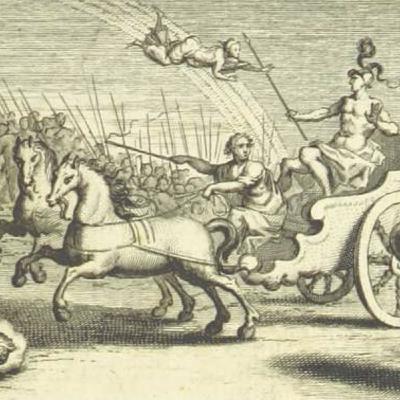S1 Ep55: SHOW 11-5-25 CBS EYE ON THE WORLD WITH JOHN BATCHELOR THE SHOW BEGINS IN THE DOUBTS ABOUT AI AND CHILDREN. FIRST HOUR 9-915 Canada's Troubled Relations with China and the US. Charles Burton (author of The Beaver and the Dragon) analyzes Canadian P
Update: 2025-11-06
Description
SHOW
11-5-25
CBS EYE ON THE WORLD WITH JOHN BATCHELOR
THE SHOW BEGINS IN THE DOUBTS ABOUT AI AND CHILDREN.
FIRST HOUR
9-915
Canada's Troubled Relations with China and the US. Charles Burton (author of The Beaver and the Dragon) analyzes Canadian Prime Minister Carney's meeting with China's Xi Jinping following the APEC conference. Burton described Carney as a "supplicant" who echoed Chinese rhetoric of "constructive and pragmatic interactions," which means focusing on trade while avoiding criticism. Issues discussed included Chinese tariffs on Canadian canola and Canada's tariffs on subsidized Chinese EVs. Burton addresses the severely strained Ottawa-Washington relationship due to US tariffs and President Trump's stated unwillingness to talk, feeding "anti-American sentiment" in Canada. This trade uncertainty is a factor in Canada's massive budget deficit, which aims to fund government infrastructure to compensate for lacking investor interest. Furthermore, concerns persist in Canada regarding Chinese EVs potentially functioning as "listening posts" for state security.
915-930
Canada's Troubled Relations with China and the US. Charles Burton (author of The Beaver and the Dragon) analyzes Canadian Prime Minister Carney's meeting with China's Xi Jinping following the APEC conference. Burton described Carney as a "supplicant" who echoed Chinese rhetoric of "constructive and pragmatic interactions," which means focusing on trade while avoiding criticism. Issues discussed included Chinese tariffs on Canadian canola and Canada's tariffs on subsidized Chinese EVs. Burton addresses the severely strained Ottawa-Washington relationship due to US tariffs and President Trump's stated unwillingness to talk, feeding "anti-American sentiment" in Canada. This trade uncertainty is a factor in Canada's massive budget deficit, which aims to fund government infrastructure to compensate for lacking investor interest. Furthermore, concerns persist in Canada regarding Chinese EVs potentially functioning as "listening posts" for state security.
930-945
The Compact for Academic Excellence in Higher Education. Peter Berkowitz (Hoover Institution Fellow and educator) discusses the Trump administration's "Compact for Academic Excellence in Higher Education," which requires universities to meet ten priorities to qualify for federal benefits like student loans and research grants. While many goals are proper or already legally required (like protecting free speech and obeying civil rights laws), several are highly controversial. These controversial points include demanding that hiring decisions be made solely on individual "merit," which critics redefine to include group diversity, and requiring universities to maintain institutional neutrality on political issues. Most universities rejected the compact, asserting it would impair academic freedom. Berkowitz suggests the administration should use direct financial incentives to reward universities that actively teach free speech, rather than relying on mandates.
945-1000
The Compact for Academic Excellence in Higher Education. Peter Berkowitz (Hoover Institution Fellow and educator) discusses the Trump administration's "Compact for Academic Excellence in Higher Education," which requires universities to meet ten priorities to qualify for federal benefits like student loans and research grants. While many goals are proper or already legally required (like protecting free speech and obeying civil rights laws), several are highly controversial. These controversial points include demanding that hiring decisions be made solely on individual "merit," which critics redefine to include group diversity, and requiring universities to maintain institutional neutrality on political issues. Most universities rejected the compact, asserting it would impair academic freedom. Berkowitz suggests the administration should use direct financial incentives to reward universities that actively teach free speech, rather than relying on mandates.
SECOND HOUR
10-1015
US-China Ceasefire and Competition in Technology and Space. Jack Burnham (Foundation for Defense of Democracies research analyst) characterizes the Trump-Xi meeting as a necessary "truce" that allows both nations to gain stability and strengthen their positions before the next escalation. Regarding rare earths, China is now employing the US "playbook," setting up a licensing structure rather than a full trade cessation. He emphasizes that building a complete rare earth supply chain outside of China, especially refining capacity, may realistically take seven to ten years. In technology, Beijing is pushing for domestic self-sufficiency in AI infrastructure, partly driven by paranoia that imported chips may contain backdoors or vulnerabilities. Burnham also details China's commitment to militarizing space, including copying US reconnaissance capabilities and practicing anti-satellite operations like "dogfighting."
1015-1030
US-China Ceasefire and Competition in Technology and Space. Jack Burnham (Foundation for Defense of Democracies research analyst) characterizes the Trump-Xi meeting as a necessary "truce" that allows both nations to gain stability and strengthen their positions before the next escalation. Regarding rare earths, China is now employing the US "playbook," setting up a licensing structure rather than a full trade cessation. He emphasizes that building a complete rare earth supply chain outside of China, especially refining capacity, may realistically take seven to ten years. In technology, Beijing is pushing for domestic self-sufficiency in AI infrastructure, partly driven by paranoia that imported chips may contain backdoors or vulnerabilities. Burnham also details China's commitment to militarizing space, including copying US reconnaissance capabilities and practicing anti-satellite operations like "dogfighting."
1030-1045
AI Philosophy and Jewish Wisdom. Spencer Klavan (Associate Editor of the Claremont Review of Books) reviews Michael M. Rosen's book, Like Silicon from Clay, which uses ancient Jewish wisdom, specifically the Golem legend, to analyze AI. Rosen categorizes AI believers into four camps: autonomists (who believe AI will achieve consciousness or sentience) and automationists (who view AI as a sophisticated, non-conscious tool). Both camps are divided into "positive" (optimistic) and "negative" (pessimistic) outlooks. Klavan identifies as a positive automationist, seeing AI as an "elaborate adding machine" or "better Google" that is helpful but requires human verification because it often "hallucinates" (makes up facts). He notes that chatbots conclude conversations with questions because they need human input to avoid becoming "deranged" and to improve their ability to predict human speech patterns.
1045-1100
AI Philosophy and Jewish Wisdom. Spencer Klavan (Associate Editor of the Claremont Review of Books) reviews Michael M. Rosen's book, Like Silicon from Clay, which uses ancient Jewish wisdom, specifically the Golem legend, to analyze AI. Rosen categorizes AI believers into four camps: autonomists (who believe AI will achieve consciousness or sentience) and automationists (who view AI as a sophisticated, non-conscious tool). Both camps are divided into "positive" (optimistic) and "negative" (pessimistic) outlooks. Klavan identifies as a positive automationist, seeing AI as an "elaborate adding machine" or "better Google" that is helpful but requires human verification because it often "hallucinates" (makes up facts). He notes that chatbots conclude conversations with questions because they need human input to avoid becoming "deranged" and to improve their ability to predict human speech patterns.
THIRD HOUR
1100-1115
US Military Operations off Venezuela and the War in Ukraine. General Blaine Holt (United States Air Force retired) analyzes the significant US military buildup off Venezuela, headquartered at Roosevelt Roads, describing it as a "war-winning force" primarily targeting cartels and sending a global message of American might. He suggests that operations will likely use commando-style tactics rather than a full occupation, potentially leveraging historical events like the Bay of Pigs as cover for unconventional approaches. The conversation pivots to Ukraine, where Russia is effectively using new glide bombs and missiles, having shifted to a wartime mobilization economy. Holt notes the profound erosion of Ukraine's infrastructure and the demoralizing lack of manpower. He argues innovative, inexpensive defenses, such as Reaper drones with Sidewinders or lasers, are needed, as current air defense economics are unsustainable.
1115-1130
US Military Operations off Venezuela and the War in Ukraine. General Blaine Holt (United States Air Force retired) analyzes the significant US military buildup off Venezuela, headquartered at Roosevelt Roads, describing it as a "war-winning force" primarily targeting cartels and sending a global message of American might. He suggests that operations will likely use commando-style tactics rather than a full occupation, potentially leveraging historical events like the Bay of Pigs as cover for unconventional approaches. The conversation pivots to Ukraine, where Russia is effectively using new glide bombs and missiles, having
Comments
In Channel





















